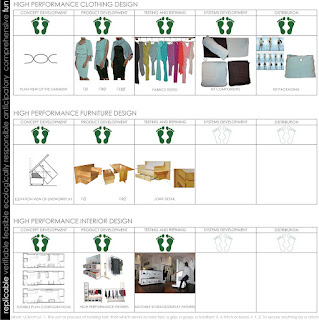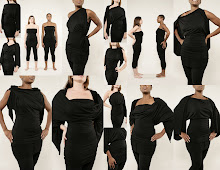This was what was required for the Buckminster Fuller Challenge of 2008
Maybe this answer was what eliminated me as a competitor. It hardly comes as a surprise. (I enter these competitions mostly to update my portfolio and clarify my thinking, anyhow) This one was juicy too, because it allowed me to reference three instances of efficient resource deployment I've been working on for the last eight years or so. Martina had done a great job getting the pages together, and all I had to do was upload it. Famous last words.
First, I was listed as unregistered, and then I couldn't get anything to upload. I was almost in tears when I called my friend Lynne, who suggested I call them for help. I did, and Matt was very helpful. It didn't save me on my end though, because it seems like I've been traveling with a black cloud of technical glitches for a while now (more on that later). In my panic and haste, my short answer to a question about my qualifications, I answered "I eat trimtabs for breakfast". Yes I did. I had to engage humor to get the application out, as I was cutting and pasting images and answers from two different computers - don't ask.
Anyhow, this was my entry, and I was pleased with it, for as far as I was able to complete it at the time. I tried to marry the fun factor to anticipatory design science, and felt I had done so successfully, but not enough to qualify for the next round. (Bucky was not particularly empathic or fun, though he did want to save the world from itself.) He reminds me a bit of Adolf Loos, who had very particular ideas about how the Modern world should operate. While I was intrigued by what he had to say, and found some of his ideas instructive, it was all too rational and extremely detached from everyday human experience.
* Comprehensive — addressing the interaction of key issues responsible for present conditions; aims to solve multiple problems without creating new ones;
Page 1 shows the convertible clothing, furniture and interior solutions I've been working on.

* Anticipatory — factoring in critical future trends and needs as well as potential long term impacts of implementation;
Page 2 shows how the products and environments adapt to a variety of uses over short term and long term event cycles.

* Ecologically responsible — reflecting nature's underlying principles while enhancing the Earth's life-support systems;
Page 3 shows how hybrid products can replace conventional ones, with less effort, and using fewer resources.

* Feasible — relying on current technology and existing resources;
* Verifiable — able to withstand rigorous empirical testing;
Page 4 shows how the products that harness the power of axial rotation to create extended capabilities, while being sturdy and enduring. The two garments shown employ the same principle as the furniture unit.

* Replicable — able to scale and adapt to a broad range of conditions.
Page 5 shows how the end goal in each project is to create and distribute flat-pack wardrobe and furniture systems that are mass customizable, with extended product life cycle.

It's still a work in progress, but that was the long and short of it. I'm sure it was received as soft/girly design science at best, and not anticipatory design science, since it didn't directly engage what is generally consider essential life support systems. My solutions are perhaps too middle class oriented to qualify, but if they took root, the labor efficiency would allow these products to be produced in America by Americans, and sold at a reasonable price.





0 comments:
Post a Comment